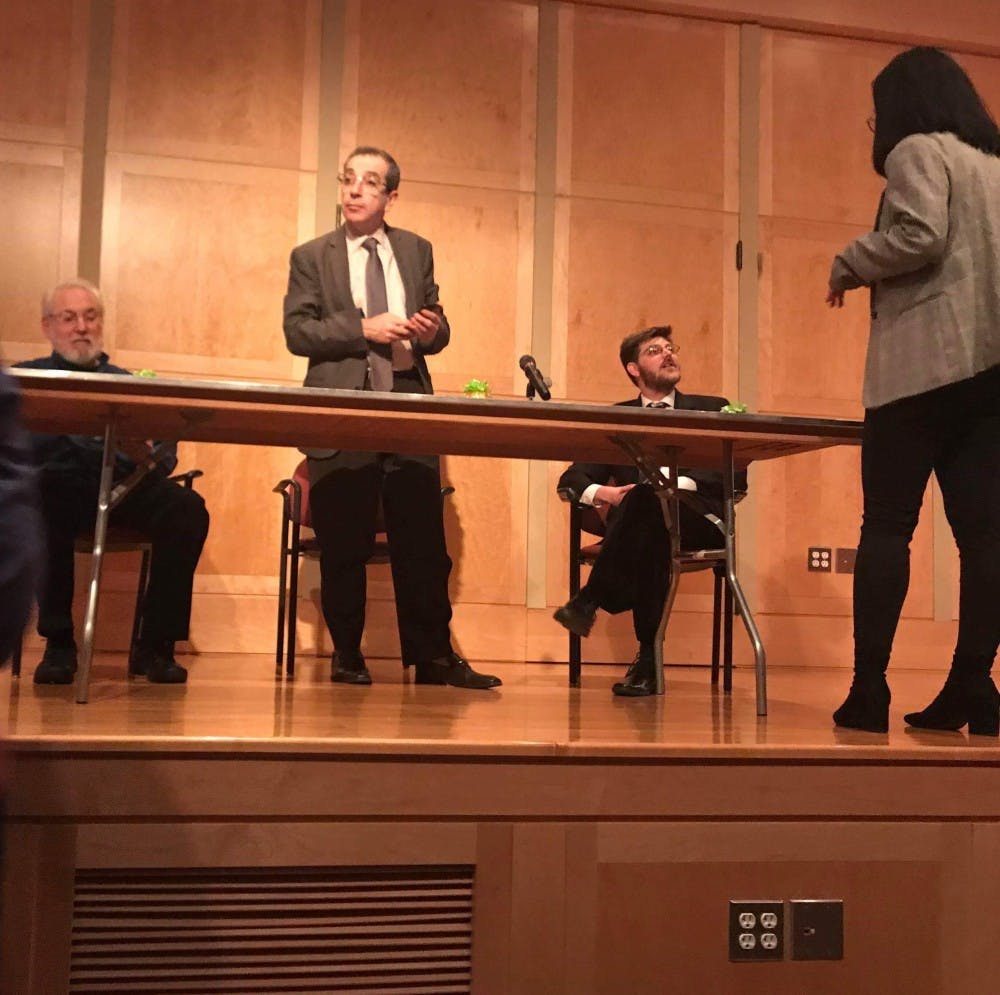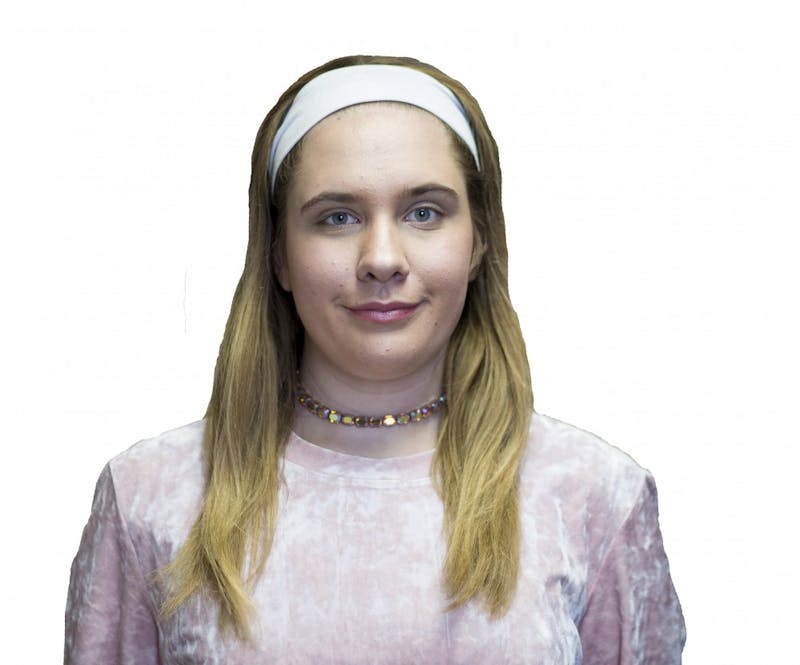Kickoff event for Middle Eastern heritage week highlights human connectivity

Middle Eastern Heritage Week kicks off with a faculty panel on Apr. 16, 2019 in the Sarah and Daniel Opperman Auditorium. The panel included faculty members Talat Halman (left), George Kikano and Timothy Hazen (right).
A faculty panel aspired to disassemble an iron fence made from Islamophobic tendencies and a lack of human connectivity to present the truth of the Middle East: It is an immense array of diversity, hospitality and persistence.
To kickstart the third-ever Middle Eastern Heritage Week, Multicultural Academic Student Services hosted a panel of faculty members on April 16 consisting of philosophy and religion faculty Talat Halman, College of Medicine Dean and Vice President of Health Affairs George Kikano and political science faculty Timothy Hazen.
The purpose of the event was to spotlight relationships to the Middle East in the sphere of higher education, said Farmington senior Caitlin Crutcher, one of the event's organizers.
Kikano greeted the auditorium with a simple and revealing question: "How many of you have lived in war?"
Now an active leader at CMU, Kikano's career and pursuits in medicine originated during the Lebanese Civil War from 1975-90.
He said during the war, which resulted in an estimated 120,000 fatalities, his academic experiences in high school and early college were ultimately bonded to the realities of personal friends being murdered and the kidnappings of classmates he would never see again.
However, he said it was living with a father subjected to chronic and clearly untreated illness that inspired him to challenge circumstances and envelope himself in the yearning to "go somewhere and make a difference."
"Health care is the best career compared to anything," Kikano said. "I would have no other career and I know it's the best career I can do."
The Lebanon native is the founding director of the Weatherhead Institute for Family Medicine and Community Health, headquartered at Case Western Reserve University in Ohio and has been featured on the "Best Doctors in America" list since 2003.
For Hazen, who had only lived in Egypt as a child while his father was working at the United States Embassy in Cairo, he said he acknowledges his understanding as only an outsider.
While Hazen instructs courses on Middle Eastern politics and the politics of Islam, he said his first goal is to challenge the filtered viewership Western young people have.
"In order to begin these lessons and essentially right from the get-go, I try to have students recognize there is a concept of framing toward how a typical American university often times upholds a Western style of viewing the East, even subconsciously," Hazen said. "There needs to be a created understanding that you can't simply see the Middle East as a single organ, but actually something quite indefinable with so much to learn."
After spending summers in Tunisia and dedicating his studies to civil-military relations throughout the Middle East, Hazen said he was anatomizing a culture of difference with more layers than what often meets the eye.
"When I teach politics, I use the opportunity to highlight and celebrate the tremendous diversity," he said. "The Middle East is too often clumped into one region, but the diversity there is so rich whimsically, culturally, theologically and politically. There is so much variation and I hope through teachings it can be better known how fascinating of a region it is."
Halman, the son of a native of Turkey, became most interested in Islamic studies during an Islamic Art and Mathematics course in early college.
"I got completely involved in all things Islam," Halman said. "The biggest challenge in my fieled at the moment (is) Islamophobia."
He said the biggest issue in understanding the Middle East comes from an inability to recognize "people are fundamentally the same at heart."
Kikano said there are three sides to every story.
"There's his side, my side and the in between," he said. "You can't just watch CNN and you can't just watch Fox News. You need to recognize the middle narrative."







